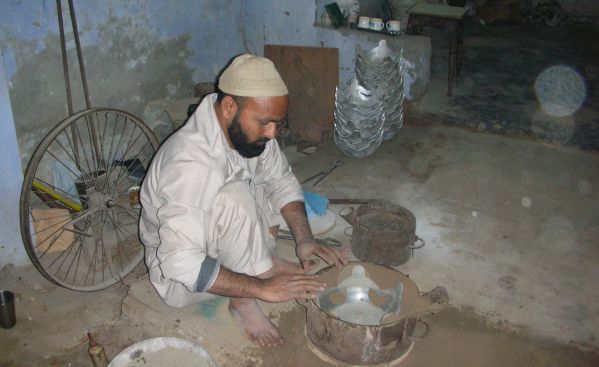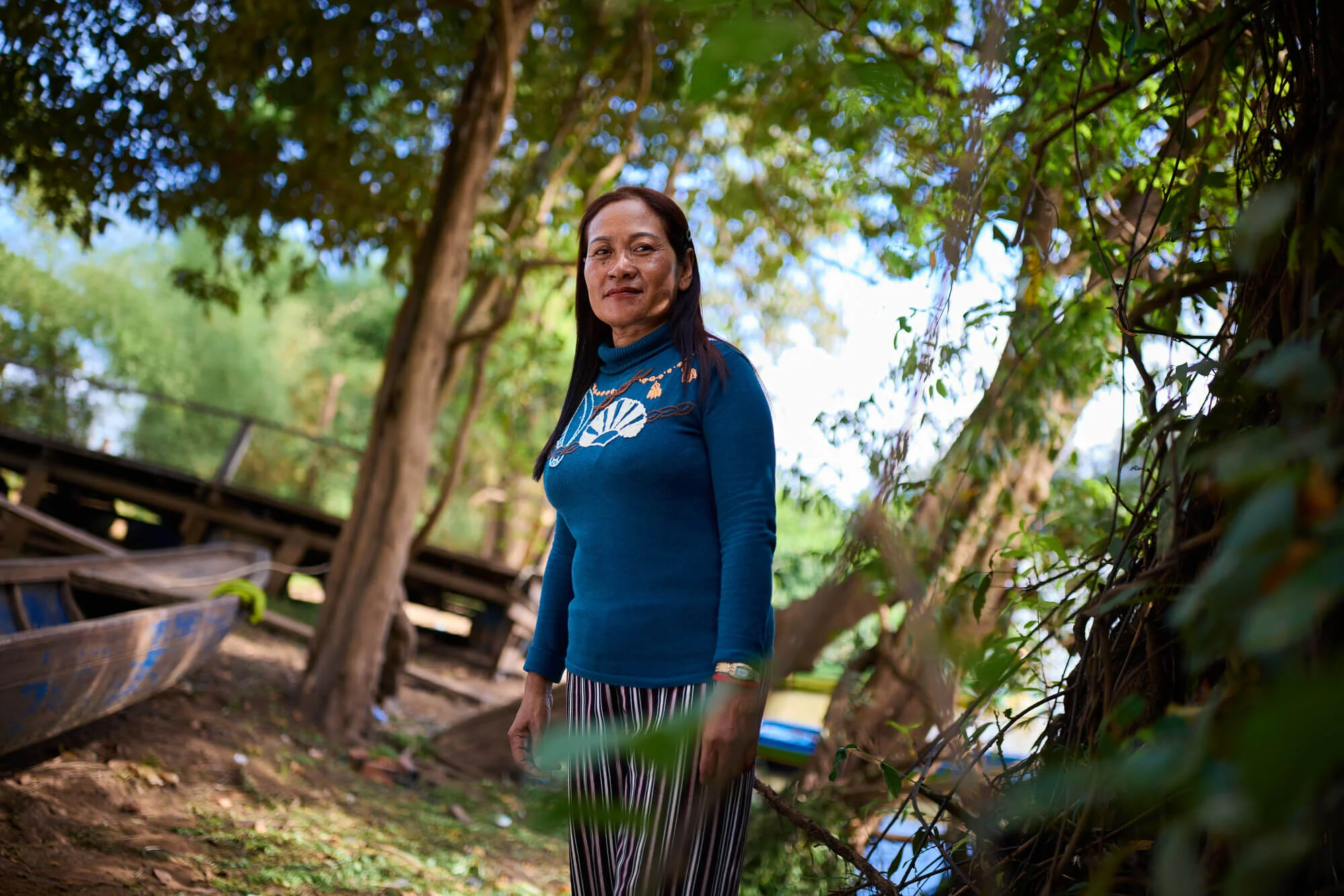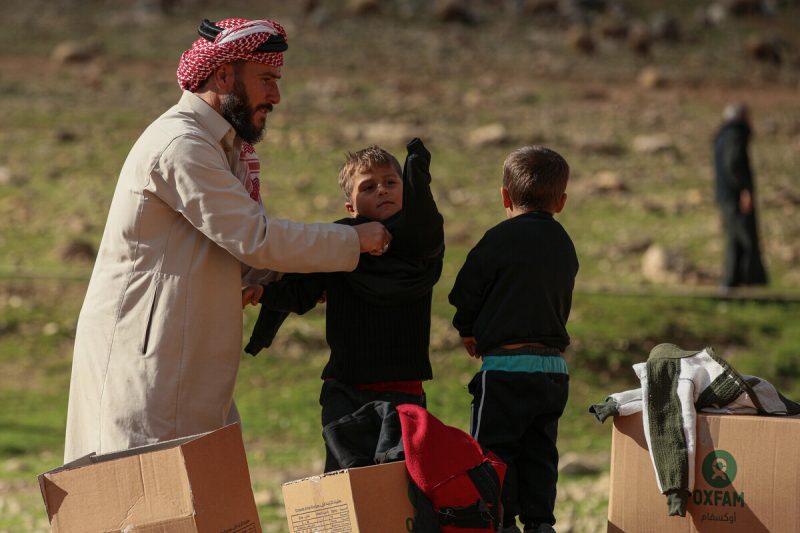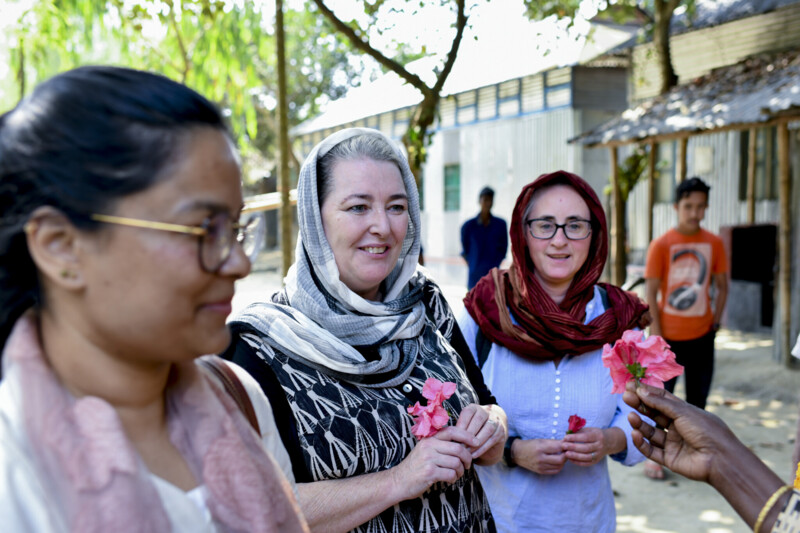By Nadine Silverberg, Trading Director, Oxfam Australia
Earlier this year, I was lucky enough to travel to India for the first time to see up close how the fair trade supply chain works, and to gain a deeper understanding of fair trade’s impact on the livelihoods of some of the world’s poorest people.
Having travelled extensively in developing countries, I wasn’t surprised by the poverty in many of the places I visited, but I was touched by people’s ambition, desire and drive to improve their lives. I was also impressed by the relative sophistication of our Indian producer partners – especially Noah’s Ark in Moradabad.
Fair trade, Noah’s Ark style
Specialising in giftware, Noah’s Ark is responsible for Oxfam Shop’s popular recycled aluminium ‘Friends’ fruit bowl. One of our best-selling products at Christmas, the bowl has been in our Top 20 since it was launched, so I was intrigued to see how it was made. 
Following a typically dramatic five-and-a-half-hour drive from New Delhi, we arrived in the small town of Moradabad, India’s capital of hand-crafted metalwork. Founder of Noah’s Ark, Samuel Masih, met us at our hotel. After a wonderful vegetarian feast in the hotel restaurant, I spent a sleepless night in my noisy, dirty hotel room – but my exhaustion the next morning was nothing compared to my excitement about meeting the Noah’s Ark team.
Noah’s Ark is what’s known as a for-profit social enterprise. After noticing how many exporters were “taking undue advantage of [Moradabad’s] artisans and … exploiting them”, Samuel established the business in 1986 with the goal of treating his workers fairly. Not only does Noah’s Ark adhere to the fair trade system, ensuring artisans are paid a fair wage and their rights respected; it also provides loans to set up new workshops, as well as regular health checks for artisans and their families. Artisans are trained in business management and Occupational Health and Safety, and women have access to sewing training.
On top of that, Noah’s Ark has established a school for children of the artisans and their families. I visited the school during my stay: it’s been a great success and is now attended by more than 120 kids. The women’s sewing classes start in the afternoon after the kids have all gone home.
The impact on livelihoods is obvious. The popularity of the beautiful products we buy from Noah’s Ark has resulted in increased demand. Increased demand has resulted in more workers being employed and trained to handcraft the products. Which means, or course, that more people are earning a fair wage and are able to feed their families.
Artisans in action
We visited one of the workshops producing the aluminium Friends bowl, run by a former artisan who’d received financial support from Samuel‘s team to set up a new workshop to meet demand for their products. By international standards, his workshop is really basic: a five-by-seven-metre room, located in what appears to be the basement of a house. We accessed it via a maze of back-street laneways, where we were greeted by locals of all ages, curious about the westerners wandering through their community.
Witnessing the bowls being made by hand was amazing – and nothing like I’d imagined. While I knew they were handcrafted, I thought this meant they were finished by hand rather than handmade from scratch. I couldn’t have been further from the truth! This tiny room housed the smelt, the artisan, the workshop owner … and that was all. I could have stood there all day, watching Mustapha creating these beautiful bowls using nothing but his hands, recycled melted aluminium, earth and a wooden mold. In winter, when the workshop isn’t too hot, he can make about 40 a day. In summer they work fewer hours due to the heat, so their output decreases.
At other workshops I visited, I met artisans who told me about the medical checks available to them and the insurance they were provided with. They’re also supplied with fresh drinking water.
Samuel invests heavily in new product development, and wandering through his showroom was like exploring an Aladdin’s cave packed with everything from cutlery to Christmas decorations – all ingeniously crafted from recycled metals. This investment has helped his organisation thrive and provide benefits to the community like those I’ve described in this blog post.
Find out more
Read more about Noah’s Ark
Learn more about fair trade



